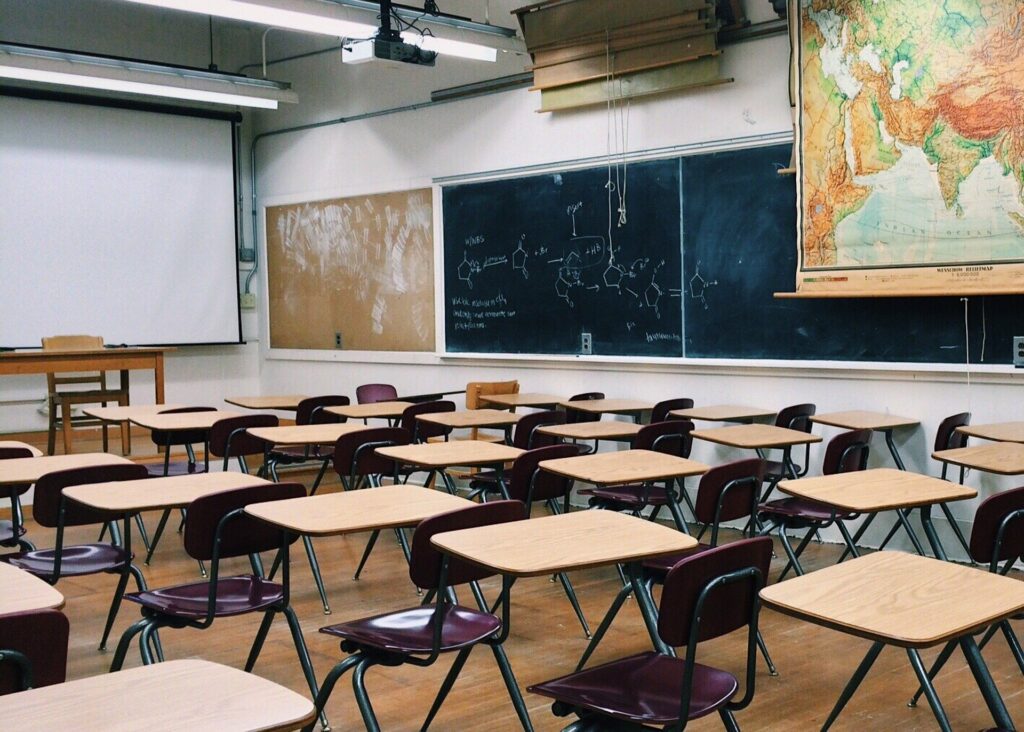Civil society is making strides in the battle to end internet shutdowns during exams, which negatively impact the lives and rights of millions. Last week, the Indian Supreme Court responded to the Software Freedom Law Centre’s petition challenging the use of internet shutdowns to prevent exam cheating, issuing notice to the Union government to explain the protocol for these disruptions. As it stands, state governments in India often cite the administration of education as a rationale for exam shutdowns, as do authorities across the MENA region. Courts must scrutinize and reject these justifications. As we explain below, regardless of the reasoning, shutdowns are not compatible with the right to education.
The right to education includes digital citizenship
A recent report by the UN Special Rapporteur on the right to education found that as education moves increasingly online, internet shutdowns lead to discrimination in access to education. In fact, courts around the world have long held that non-discrimination is at the core of the right to education and the basis of citizenship, as far back as the desegregation ruling in the U.S. The Special Rapporteur affirms that access to the right to education online is not just about the mere delivery of coursework, but aimed at enabling digital citizenship and digital agency. In other words, it is about ensuring all students can freely participate as equals in all dimensions of human life, as active citizens, including developing the capacity to adapt to a digital world with digital competencies.
In fact, the first Indian court to recognize a right to internet access did so on the basis of digital agency. In a case challenging mobile use restrictions in residential buildings for women college students, the court recognized the autonomy of women students to use digital tools to further their right to education. The Court thus rejected the argument of college authorities that students could turn to other sources of offline education, such as library books, and upheld the right to internet access as protected by both the right to education and personal autonomy guaranteed by the right to privacy.
Prolonged shutdowns lead to “digital apartheid”
As schools moved online in response to the COVID-19 pandemic, a Delhi court considered a petition requiring the state to bridge the digital divide in order to ensure the right to education of educationally excluded communities. The court held that the state’s failure to provide smart devices and free internet to these communities was an act of segregation in education, which contravened the guarantees of the right to inclusive education and amounted to digital apartheid.
When internet shutdowns are long-term, they also take on the characteristics of apartheid in their targeted exclusion of specific populations from public participation. A report by a civil society group in Kashmir documented how “frequent and prolonged internet shutdowns enact[ed] a profound digital apartheid by systematically and structurally depriving the people of Kashmir of the means to participate in a highly networked and digitized world.” The impact of this apartheid on education was devastating. In August 2020, students in Kashmir’s 30,000 schools and 400 institutes of higher education marked a full year without attending school, college, or university.
Courts must look beyond state justifications citing national security
Given these facts, have parties challenging internet shutdowns previously advanced arguments on the right to education before courts? Yes — but in their response, courts have focused on arguments regarding freedom of expression, legality, and the proportionality of restrictions (see, for instance, the Kashmir internet shutdown ruling by the Indian Supreme Court, and Access Now’s intervention in the Nigeria Twitter ban case before the ECOWAS Court). The limitation of this approach has been that courts recognize a deference to states in their assessment of national security, and this creates the implication that shutdowns may sometimes be justified, even if they are ruled illegal in the specific cases before these courts.
However, as a recent report by the Office of the UN High Commissioner for Human Rights clarified, internet shutdowns are inherently disproportionate, even if made in response to genuine threats, given the scope and impact they have on human rights. The adverse impacts on the educational opportunities of refugees in Bangladesh and Myanmar for example, far exceeds the period of a shutdown. The report confirms that shutdowns “undermine pedagogical outcomes and interfere with education planning and communication among teachers, school administrators, and families.”
Given this context, the right to education offers courts a tool to understand the full impact of shutdowns as a form of exclusion from dimensions of human life, without undue deference to states. In particular, elementary education of children has been seen as a minimum core socio-economic right, and has been codified in many state constitutions. It is on this basis that courts in countries such as South Africa have held states accountable, irrespective of administrative justifications.
Judicial scrutiny is particularly relevant where shutdowns become a form of structural social exclusion from the international community. This is because while states can achieve some aspects of the right to education incrementally, non-discrimination must be immediately realized. State justifications regarding resource constraints, administrative needs, or the existence of effective offline tools for education are irrelevant where it is apparent that internet shutdowns are essentially a tool of social exclusion.
For these reasons, we believe it is critical that courts consider the right to education and safeguard against the emerging threat of internet shutdowns as a 21st century form of segregation in education.
